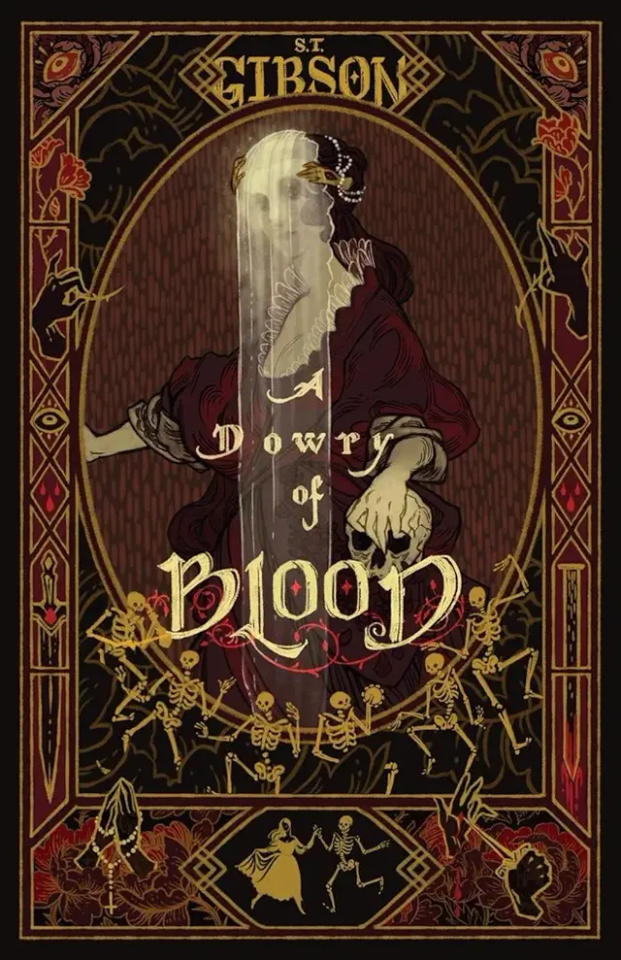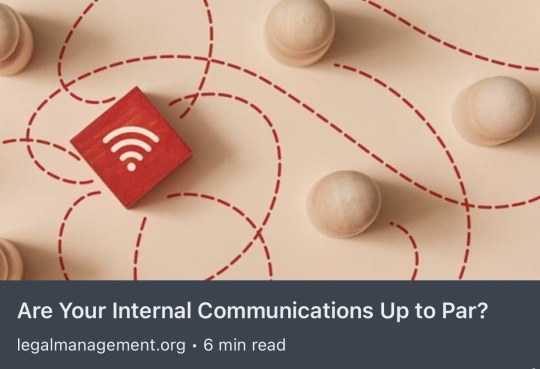#Gibsons Marketing
Text
TFW you are intrigued by a book and you look to purchase a copy but the out of print cover is gorgeous and the in print cover is garbage...

In this case it was A Dowry of Blood by S. T. Gibson, look at the stunning oop cover 😱


DANCING SKELETONS!! The border motifs!! The veiled portrait!!
#I am looking on the 2nd hand market but pricing is hundreds of dollars 😭#a dowry of blood#s t gibson#s. t. gibson#bookblr#bookworm#bookish 📚#mine#oop#Loki.speaks#gif warning
9 notes
·
View notes
Note
bojacks worth a lot of money as a celebrity you could probably sell him on the black market
But then who's gonna take care of me if I do that????
6 notes
·
View notes
Text
Dubai Market Research Experts - Gulf Analytica
Dubai Market Research Experts: GULF ANALYTICA offers a comprehensive range of consulting services in Dubai, specializing in financial analysis in the Middle East and providing wealth management solutions for family offices in the Gulf region. Our team of experts includes David Gibson Moore, a renowned financial consultant with extensive experience in the field.:
Wealth consulting for family offices in Gulf region: We are the Dubai market research experts, equipped to handle speaking events, recruitment event management, and specialized training for financial companies, particularly in areas such as hedge funds, private equity, and portfolio management, with a specific focus on their impact on business development in the Middle East.
Gulf Analytica services in Dubai: Recent examples of our involvement in major industry events include panel member participation at the AIM Alternatives Summit Dubai in November 2018, where we discussed topics related to "Family Offices - Entering the Majlis." We delved into the position of families and their businesses in GCC society, family portfolios, diversification, risk reduction, investment processes, and Sharia-compliant investment strategies for family offices.
0 notes
Text
“When clients see a rich culture, they want to work with us. And talent wants to come work here.” Thank you, ALA, for allowing me to contribute to the article “Are Your Internal Communications Up to Par?” #lmamkt
Thank you, Paula Tsurutani and Association of Legal Administrators (ALA), for including my humble thoughts in this important piece on the essential need for solid internal #communications. Honored to be here alongside luminaries and friends like Jaffe’s Terry Isner, Davis Wright Tremaine LLP’s Sean Gibson, Builden Partners’ Jocelyn Brumbaugh, Blank Rome LLP’s Frank Spadafino.
Read here:…

View On WordPress
#lmamkt#ann arbor#Association of Legal Administrators#authenticity#Blank Rome LLP&039;s Frank Spadafino#branding#Builden Partners&039; Jocelyn Brumbaugh#columbia city#communications#Davis Wright Tremaine LLP&039;s Sean Gibson#detroit#film review#indiana#InHouseWarrior#Jaffe&039;s Terry Isner#john mola#law#law firm#legal#legal marketing#legal marketing association#Luis Gonzalez#marketing#michigan#misunderstood gargoyles and overrated angels#Nicky ocuna acana#Paula Tsurutani#peggy fleming#reel roy reviews#reelroyreviews
0 notes
Text


"This video was being developed as Patrick returned to work with Fall Out Boy and stopped marketing this album. It available for private viewing.
I was very excited for the chance to make another video with Patrick for "Everybody Wants Someone." Patrick wanted to do something that was fun and played to the energy of the song. I thought bringing him together with a variety of characters and dance styles into a single little show really worked with the eclectic pop feel.
Concept, Director, Producer, Editor: Joe Wein
DP: Daniel Herman
Second Camera: Kirk Fletcher
Dancers: Can Nguyen, Jordi Baballero, Tammy Gibson, Tailor Lee, Aviel AV Ayoung, Suzanne Narbonne"
(x)
315 notes
·
View notes
Text
Honestly, the thing about the stolen RAM chips might be one of my favourite little details in Neuromancer, because it's both the most obviously ridiculous detail to modern audiences, and practically the only thing about computers the text actually gets right. Prior to the price crash of 1996, RAM genuinely was the most expensive component of a desktop computer – like, by an order of magnitude. There really was a thriving black market in stolen RAM chips. This was literally the one thing William Gibson actually knew about computers, and now it's one of the silliest lines in the whole book.
2K notes
·
View notes
Text
The classism in the "music gear" scene is fucking atrocious. So many people will shit on other people for using affordable gear as a way to justify within themselves that dropping $3,000 on a guitar was a smart financial move.
About 3-4 years ago I joined a band and a month after I joined we went on some video podcast. Play a few songs, do an interview, something I've never done before but it seemed like it'd be fun.
I wasn't able to really get a word in during the interviews (stuttering/speech impediment/anxiety issues ran wild) but I was able to speak up whenever the host went around and asked us what our favorite instrument/gear brands were. Weird question, but alright buddy.
I've always been a fan of cheaper gear. You don't need all sorts of expensive shit to get the sound you want. So when he asked my answer was "Squier" and the dude just started laughing. Because who possibly would prefer one of the cheaper brands??? (Keep in mind this douche had a whole wall of the absolute worst looking collection of custom shop BC Rich guitars you've ever seen.)
Eventually he backed down once I started arguing with him about it, but his immediate elitist attitude really struck a cord in me because I see that shit all over the internet in music communities. "Oh you only like Squiers/Epiphones/Harley Bentons because you can't afford BIG BOY guitars like a $5,000 Gibson".
Fuck right off with that shit. Why would I pay thousands of dollars for a guitar when I can get something that works amazingly for me for just a few hundred dollars? The extra money I save by not dropping 4 figures on a guitar or amp goes towards paying my bills, feeding my kids, just trying to fucking live and exist.
At this point I've had to sell 99% of my music gear after over a decade of following the gear chase. I only have a "cheap" acoustic I bought several years ago for $350 and it's the best guitar I've ever had. I love my little busted neck Hummingbird to death.
I'm much happier now than I was when I had a huge assortment of pedals and guitars to choose from. The Gear Chase is designed to make you want to spend more and more money in an endless pursuit of finding that "perfect" piece of gear. Guitar companies, partnered youtubers, influencers, and all sorts of advertisement campaigns are purposefully trying to misguide you into thinking you NEED their product. It's marketing and capitalism at work and so many musicians fall for it every time. I fell for it for years before I got completely fed up with it.
Go out and gig with your Squier Bullet Strat and a cheap amp you found at a pawn shop, fuck anyone that gives you shit for it. Go ahead and record with whatever you have at your disposal. Put out an album that's comprised of Voice Memos you recorded on your phone with just an acoustic and your voice.
Music, like any art, is about way more than what you used to get there. It's how you express yourself that really matters. Don't listen to the elitists and marketers telling you the only way you can authentically reach your creative vision is by buying their snake oil.
312 notes
·
View notes
Note
god that weird crossover episode with the beyond borders spinoff,,, when hotch is chasing that guy through the crowded markets can you imagine being an extra and having thomas gibson grab your arm to stable himself as he runs past you i'd pass away
sorry i know you weren't requesting this and of course this isn't about thomas it's a hotch blurb but i literally could not resist writing it so here you go lovey you are so right i'd have toppled over <3333
--
You think it's rather rude that the man rushing through the marketplace uses you to stabilize himself as he turns a sharp corner. His arm juts out quickly to push against your shoulder, giving himself your side to lean on, but it means that the bag of fruit you'd been gathering to pay for hits the side of the table as you sway into it, and the paper tears at the sharp intrusion. Your bag splits, and you watch defeatedly as all of the produce you'd gathered tumbles to the dirty ground.
You're nothing but astounded, well aware that the police chase should have you more on edge, but completely bewildered and shock-stricken. All you can do is lift your head to watch the man run off, and he notices the damage he'd caused as he turns to throw a haphazard 'sorry!' over his shoulder at you.
He's still running but he staggers a step, torn between the chase he's engaged in and helping you. The business side of his brain starts working first, and he dashes away with barely a second's hesitation, but you'd seen guilt in his eyes that almost made up for your fallen fruit.
The crowd is keen on dispersing as the chase continues beyond you, but you don't care. They're not coming back, it would be foolish of the criminal they're after to circle back, and you kneel to collect the produce you'd lost in the chaos.
You hear the roar of engines as you try collecting the mangoes you'd dropped, now bruised and grimy. A nearby fruit stand had collapsed, the next on your list to shop at, and it's difficult to tell what's what as the fruit rolls and mingles together.
The shopkeepers congregate to join your cause, but where you're gathering the fruit in the front of your skirt, they're scooping it back into crates that had tipped wayward. You've got shorts beneath your flowy skirt that mean you can use it as an apron instead, and before long you're nearly finished re-shopping through the mess on the ground.
"Here," A deep voice comes from above you, and you jerk your head to the side to find the man that had bumped into you only seconds before. Evidently, the chase was over, but you're not sure the outcome. He's panting, chest heaving hard from running as much as he did, but he's holding out a jacket towards you, one that he's tied into a makeshift satchel.
"I'm sorry," He pants, kneeling beside you on the concrete to help scoop produce into the jacket, "I didn't mean to ruin your bag. I had to catch that man, I'm sorry I couldn't stop to help."
"It's alright," You try to keep sourness out of your voice even if you are handling citrus fruits, begrudging towards the man for nearly knocking you down but grateful that he's stopped by to fix things, "I suppose police chases are always that chaotic.
"Yeah," He breathes, still exhaling heavily as he cracks a smile at you. His hairline is beaded with sweat, and it's really rather distracting, so you try averting your eyes lest your mind wander.
"I'll buy you a new bag," He helps you stand, hauling the fruit from his tied jacket onto the righted table and motioning at another stall across the way, "They sell them, I'll be right back. Color?"
"Oh, I-" You stammer, seizing up on the spot, "Um- anything's fine."
"Alright," He's rushing off to the stall while pulling his wallet out without further hesitation, and you wonder if he always moves this fast.
You ring up the produce you want to buy with the cashier, who's quick on her feet to recover from the shock of the chase. Other vendors aren't as lucky, but you're done with your shopping after this.
"Here," The man comes back, still panting slightly, as he extends a white tote bag made just across the way.
"It matches your skirt," He smiles kindly at you, and okay, you might forgive the guy.
"Thank you," You gush, taking the bag from him and nodding when the woman tells you your total. You focus on the fruit first, scooping it gently into your new bag, and the man takes it as an opportunity to pull out his wallet again.
"Here-" He starts, but you catch him before he can pay for your food.
"It's alright!"
"No, I insist," He succeeds in handing his cash to the woman, who doesn't really look like she cares how she gets paid, just that she does, "I almost tackled you, the least I can do is pay for the fruit I knocked all over the floor."
"Thank you," You grin at him when the transaction is complete, and the stall owner flocks to help another across the way. You're alone now, though still in the middle of the fairly crowded marketplace, and you admire the polo shirt that the man in front of you has stretched over his surprisingly toned chest.
"I'm sorry, again." He smiles bashfully, reaching out to cup the back of your bent arm as he gestures away from the black vans gathered at one end of the marketplace.
"You'll have to leave through there, but you should be careful. Do you need a ride?"
"No, I'm okay." You shake your head, "I rode my bike here, and it's parked over there anyways."
"Alright. Okay, uh- stay safe." He urges, his kind smile fading slightly as someone in black sunglasses barks information at him. He nods, squinting slightly because of the sun, "Goodbye. Enjoy your fruit, and I'm sorry again."
"It's alright," You laugh, finally over your temporary grudge, "Sir?"
"Yes?" His brows raise, and you think for a moment he might be expecting you to ask for a ride anyways.
"I'm going that way," You gesture towards the road you'll take home, and you relish the bashful beam that overtakes his face when he laughs at your words, "If you guys drive through there, try not to hit me again."
#aaron hotchner x reader#aaron hotchner imagine#aaron hotchner scenario#aaron hotchner oneshot#aaron hotchner one-shot#aaron hotchner one shot#aaron hotchner headcanon#aaron hotchner headcanons#aaron hotchner hc#aaron hotchner hcs#aaron hotchner fanfiction#aaron hotchner fanfic#aaron hotchner fic#aaron hotchner blurb#aaron hotchner drabble#aaron hotchner dialogue#aaron hotchner fluff#aaron hotchner x reader fanfiction
561 notes
·
View notes
Text

lari ⋆ 27 ⋆ brazilian with adhd ⋆ she/her ⋆ fanfic writer ⋆ aaron hotchner obsessed
this is a nsfw page, minors please, please, don't interact with content not appropriate for your age.

self proclaimed president of: ⋆ rossi!reader ⋆ liaison!reader ⋆ lawschool!hotch
co-creator of: ⋆ adhd!reader ⋆ activist!reader
thighlover!hotch & softdom!hotch, nerdyawkward!hotch truther
this is an anti daddykink!hotch zone i don't accept criticism on it
demily, spencelle & bloody!hotch 2024 marketing campaign head
yapping ⋆ theorizing ⋆ making all thomas gibson's roles hotch related somehow ⋆ screencaps ⋆ scene packs ⋆ opinions no one asked for ⋆ constant live posting of criminal minds episodes ⋆ current watch: finished s14 ⋆ current rewatch: s1

REQUESTS ⋆ OPEN FOR AARON HOTCHNER
⋆ CONTENT WARNINGS FOR REQUESTS AND GENERAL ⋆
don't request: noncon/dubcon/cnc, age gap when one is underage, incest, pregnancy, periods, parenthood, smut.
the fact i won't take requests on those doesn't mean i won't reblog or write on my own. beware of warnings.
i don't guarantee writing all requests!
racism, homophobia, transphobia and all that fascist shit will be deleted, blocked and cursed by me with my witch powers. i'm a communist & anti zionist.

☾• FULL LIBRARY — turn notifications on to know when i've posted fanfics!
☾• THEORIES / ESSAYS / DEEP TALK
☾• SCENE PACKS
☾• HOTCH EDITS TIKTOK
☾• BUY ME A COFFEE?

gif dividers and line dividers by cafekitsune;
other graphics are made by me.
131 notes
·
View notes
Text





Another thing I feel like I say a lot: zine is a sort of meaningless term, interchangeable with chapbook and booklet and probably other words that all refer to the same basic format. I think for a lot of folks “zine” implies photocopied and chapbook means “really nice paper” and I am usually dismissive of these sorts of taxonomies. However! I have a bunch of publications (both real and, courtesy of the HP Lovecraft Historical Society, fake), dedicated to short monographs on different historical subjects or artifacts. These are formal looking, are printed on fancy paperstock and just feel, well, academic in their presentation. They’re still essentially zines, but also somewhat different. Tyler Vance’s Void (2021) feels of a kind with those.
Void: Records from the Frontier 001 is a world building exercise consisting of six of Vance’s gorgeously strange, fossil-like paintings accompanied by brief vignettes. Taken together, the reader/viewer should begin to cobble together some facts — there is a Void, people go in, sometimes they don’t come out, sometimes they come out carrying things with them. I don’t want to pollute your potential experience with my notions, so I will mostly leave it at that, but I find it and its sequel volumes wonderfully meditative and evocative. (OK, a little more: Stalker, Annihilation and Gibson’s short story “Hinterlands” are all touchstone for my reactions to Void).
I think it is well known that I like these sorts of no-system world-building projects (A Thousand Thousand Islands, Rainy City, Lodestar to Karamouska), but I like that this goes one step farther and, aside of the artist’s statement at the front, it feels like an in-universe artifact, a catalog for some strange museum exhibit, an auction book, a secret black market log. Volume two has similar vibes and oh man, volume three, A Young Person’s Introduction to Erratics, takes things in a fantastic new direction (that is pretty clearly signposted by the title). It will pull you even further into this strange underground.
Grab all three from his store. You won’t be sorry!
133 notes
·
View notes
Text
"The Need For Topical Music", written by Phil Ochs
Before the days of television and mass media, the folksinger was often a traveling newspaper spreading tales through music.
It is somewhat ironic that in this age of forced conformity and fear of controversy the folksinger may be assuming the same role. The newspapers have unfortunately told the truth, the whole truth and nothing but the cold war truth so help them, advertisers. If a reporter breaks the "code of the West” that used to be confined to Hoot Gibson movies, he’ll find himself out on the street with a story to tell and all the rivers of mass communication damned up.
The folksingers of today must face up to a great challenge in their music. Folk music is an idiom that deals with realities and not just realities of the past as some would assert. More than ever there is an urgent need for Americans to look deeply into themselves and their actions and musical poetry is perhaps the most effective mirror available.
I have run into some singers who say, “Sure, I agree with most topical songs, but they're just too strong to do in public. Besides, I don't want to label myself or alienate some of my audience into thinking I'm unpatriotic.”
Yet this same person will get on the stage and dedicate a song to Woody Guthrie or Pete Seeger as if in tribute to an ideal they are afraid to reach for. Those who would compromise or avoid the truth inherent in folk music are misleading themselves and their audiences. In a world so full of lies and corruption, can we allow our own national music to go the way of Madison Avenue?
There are definite grounds for criticism of topical music, however. Much of the music has been too bitter and too negative for many audiences to appreciate, but lately there has been a strong improvement in both quantity and quality, and the commercial success of songs like “If I Had a Hammer” have made many of the profit seekers forget their prejudices.
One good song with a message can bring a point more deeply to more people than a thousand rallies. A case in point is Pete Seeger's classic “Where Have All the Flowers Gone” which brought a message of peace to millions, including many of the younger generation who do not consider themselves involved in politics.
Folk music often arises out of vital movements and struggles. When the union movement was a growing, stirring and honest force in America, it produced a wealth of material to add to the nation's musical heritage. Today, there regrettably seem to be only two causes that will arouse an appreciable amount of people from their apathetic acceptance of the world; the Negro struggle for civil rights and the peace movement. To hear a thousand people singing "We Shall Overcome" without the benefit of Hollywood's bouncing ball is to hear a power and beauty in music that has no limits in its effect.
It never ceases to amaze me how the American people allow the hit parade to hit them over the head with a parade of song after meaningless song about love. If the powers that be absolutely insist that love should control the market, at least they should be more realistic and give divorce songs an equal chance.
Topical music is often a method of keeping alive a name or event that is worth remembering. For example many people have been vividly reminded of the depression days through Woody Guthrie’s dust bowl ballads. Sometimes the songs will differ in interpretation from the textbooks as with “Pretty Boy Floyd”.
Every newspaper headline is a potential song, and it is the role of an effective songwriter to pick out the material that has the interest, significance and sometimes humor adaptable to music.
A good writer must be able to picture the structure of a song and as hundreds of minute ideas race through his head, he must reject the superfluous and trite phrases for the cogent powerful terms. Then after the first draft is completed, the writer must be his severest critic, constantly searching for a better way to express every line in his song.
I think there is a coming revolution (pardon my French) in folk music as it becomes more and more popular in the U. S., and as the search for new songs becomes more intense. The news today is the natural resource that folk music must exploit in order to have the most vigorous folk process possible.
(Broadside #22, March 1963)
57 notes
·
View notes
Text

Mechanic : The last of the V8 Interceptors... a piece of history!

Mechanic : Would've been a shame to blow it up.

The Pursuit Special, also referred to as the Last of the V8 Interceptors, is the iconic black GT Falcon muscle car featuring a distinctive supercharger driven by the title character Mad Max during much of the Mad Max franchise, where it appears in Mad Max, Mad Max 2: The Road Warrior and in Mad Max: Fury Road, as well as both video games.

The first car shown in the film with the title of Pursuit Special is a 1972 HQ Holden Monaro[V8 coupe stolen by Nightrider (played by Vince Gil), an escaped cop killer, who dies in an accident that destroys the vehicle. The more famous Pursuit Special is a heavily modified Ford Falcon XB GT, built on a vehicle originally assembled stock at the Ford plant in November 1973. Maxwell "Mad Max" Rockatansky (Mel Gibson) is offered the black Pursuit Special, as an incentive to stay on the force as their top pursuit man after he reveals his desire to resign. Although Max turns the offer down, he later uses the black car to exact his revenge on an outlaw motorcycle gang who killed his wife and son.

The vehicle started out as a standard white 351 cu in (5.8 L) Australian built 1973 Ford Falcon XB GT Hardtop when in 1976, filmmakers Byron Kennedy and George Miller began preproduction on Mad Max. The movie's art director Jon Dowding designed the Interceptor and commissioned Melbourne-based car customizers Graf-X International to modify the GT Falcon. Peter Arcadipane, Ray Beckerley, John Evans, and painter Rod Smythe transformed the car as specified for the film.

The main modifications are the black paint scheme, roof and boot spoilers, wheel arch flares, and front nose cone and air-dam designed by Arcadipane (marketed as the "Concorde" style). Also, eight individual exhaust side pipes were added (only two of them being functional, others appeared to be working because of the vibrations the first two created). The most famous feature of the car is a Weiand 6-71 supercharger[5] protruding through the bonnet. The impressive looking supercharger, in reality, was nonfunctional; functional superchargers are typically driven constantly by the engine and cannot be switched on and off, as portrayed in the first two Mad Max films.
1973 Ford XB Falcon GT 351
Pursuit Special, when the term is used, generally refers to Max's more famous V8 Interceptor Pursuit Special, a 1973 Ford XB Falcon GT 351, commissioned at great expense by Police Commissioner Labatouche and the Main Force Patrol's (MFP) commander, Fifi Macaffee.
#car#cars#muscle car#american muscle#Ford XB Falcon GT 351#Ford XB Falcon GT#Ford XB Falcon#Ford XB#Ford#mad max#the road warrior#road warrior
80 notes
·
View notes
Text

Mel Gibson is allegedly working on a 4-part docu-series about the $34 billion global child sex trafficking market involving countries like Ukraine. 🤔
#pay attention#educate yourself#educate yourselves#knowledge is power#reeducate yourself#reeducate yourselves#think for yourself#think for yourselves#think about it#mel gibson#question everything#ask yourself questions
351 notes
·
View notes
Text

William B. Maddux's Design for Labeling Barrels [Simon Crow's Pure White Wheat Whiskey Label]
Record Group 241: Records of the Patent and Trademark OfficeSeries: Design Patent Drawings.
This colorful design patent was used to distinguish barrels of Simon Crow's whiskey from its competitors.
This round label shows a color drawing of a bucolic agricultural scene of peasants having a picnic under a tree. Several of the men drink from tin cups while women in 18th or 19th century dress lay out food. In the background, farm workers are harvesting a wheat crop. A large farm house and out buildings can be seen in the distance. THe scene is surrounded by a black border decorated with fruit and wheat stalks. Along the top it says, “Simon Crow’s Pure White Wheat Whiskey.”
Complete transcription:
Simon Crow's Pure White Wheat Whiskey Design Patented "Caution" Having exclusive control of this make of Whiskey, I have in order to protect the Consumer from imposition, gone to a great expense to have this label lithographed and patented. Thus rendering it impossible for the Buyer to be imposed upon by the many worthless imitations now being forced on the market. Lithographed by Gibson & Co Cincinnati. [Handwritten notations top] H 33 No. 1897 [Unreadable] W. B. Maddux Design for Labeling Barrels Patented July 16, 1864 [Handwritten notations bottom] [Unreadable] B Maddux Witness James F Williams Jared H Leoring
48 notes
·
View notes
Text
Pinkdrunk Linkdump

Today (November 18) at 1PM, I'll be in Concord, NH at Gibson's Books, presenting my new novel The Lost Cause, a preapocalyptic tale of hope in the climate emergency.
On Monday (November 20), I'm at the Simsbury, CT Public Library at 7PM

Happy Saturday! As is so often the case, I have finished the week with more stray links that I can fit into my blog, so it's time for a linkdump post, in which an assorted assortment is assembled. This is my tenth such linkdump – here are the previous installments:
https://pluralistic.net/2023/11/05/variegated/#nein
While nostalgia is a toxic impulse (h/t John Hodgman), there's no denying that there once existed an old, good web, and that it has given way to the enshitternet. I don't want to bring the old, good web back, but I would welcome a new, good web, and by studying the factors that contributed to the old, good web's rise and fall, we can both conjure up that new, good web – and protect it.
Above all, the old, good web was contingent, a series of lucky accidents, like Tim Berners Lee's decision to make the code and ideas and protocols for the original web as open and free as possible:
https://pluralistic.net/2023/11/13/this-is-for-everyone/#revisiting
This meant that there was no way to use the law to capture the web. Contrast that with, say, AOL or Compuserve. If you were the Compuserve's CEO and one of your rivals started using your servers to deliver a service that your users preferred, which shifted value from you to this new rival, you could just pull the plug on them. If they came back – using reverse-engineering or fake signups or whatever – you could sue them. Compuserve's bosses made the rules, any rules they wanted, and could kick you off if you violated them. If you pressed the issue, they could get the government to come and fine you, or, in extreme situations, arrest you.
But the open web didn't have these enforcement hooks. If you ran an early website and Yahoo deeplinked to it, you could change the link, but you couldn't make Yahoo stop. The open web was competitive, and that prevented anyone from exercising a veto over who could make the web, and how. It meant that the web was always up for grabs, with key chokepoints like browser market share swinging around wildly from one vendor to another (until Microsoft started illegally tying blocking rival browsers in Windows).
That meant that the "governance" of the web was often just a matter of the technical details of its standards. Code may not be law, but it was sure law-like – if something was in, say, a W3C browser standard, then all the browsers would support it, and then anyone trying to do something cool on the internet could rely on every potential user having it.
Naturally, this made standards development organizations into the sites of vicious power-struggles. These SDOs are classic "weak institutions," lacking the robust rules of, say, a competition regulator, to say nothing of the investigative and enforcement powers of the DoJ:
https://pluralistic.net/2023/04/30/weak-institutions/
But in the old, good web days, the SDOs had an important advantage: the corporate fragmentation of the web. Because of TBL's decision not to create IP chokepoints, even the wildly overcapitalized companies of the go-go dotcom bubble days weren't able to control the web. No one company was indispensable to the web.
If Microsoft wanted to tilt a W3C standard to its advantage, it couldn't threaten to leave the consortium if it didn't get its way. For one thing, the consortium had such a diversity of membership that losing any one member's dues wouldn't sink the org's finances.
For another, if Microsoft boycotted the W3C, that would just mean that the web standards that all those other companies were making wouldn't reflect its priorities or desires. By staying in the W3C, Microsoft got to participate in rulemaking – if it left, it would be relegated to rule-taking.
But the DoJ and FTC spent the ensuing decades in something like a coma. After a failed bid to break up Microsoft – killed when GW Bush stole the 2000 election and dropped the case – America's antitrust enforcers snoozed through decades of consolidation, and the transformation of the old, good web into "five giant websites, filled with screenshots of text from the other four":
https://twitter.com/tveastman/status/1069674780826071040
This turned SDOs into increasingly fraught battlegrounds where giants duked it out among each other for control of the web. In the days of the old, good web, the W3C was able to continue TBL's chokepoint-free ethos, creating rules that forced members to surrender their patents at the door:
https://www.w3.org/Consortium/Patent-Policy-20040205/
But once the enthitternet was fully in force, the largest corporate members became so important to SDOs' ability to operate that even the W3C wasn't able to resist. They started turning out IP-encumbered standards that were so proprietary that even filing bug-reports against browsers could mean jailtime:
https://www.eff.org/deeplinks/2017/09/open-letter-w3c-director-ceo-team-and-membership
Within a couple years, it became functionally impossible to implement a web-browser without a license from one of a tiny handful of gigantic, monopolistic corporations, who could use the license to exercise a veto over both who could make a browser, and what that browser could do:
https://blog.samuelmaddock.com/posts/the-end-of-indie-web-browsers/
Standards development is one of those esoteric, hugely important activities that almost no one knows anything about. Good standards are key to an open, free internet, and as governments around the world grapple with Big Tech monopolies, their plans often include a block that basically reads "insert good standard here."
As exciting as the EU's Digital Markets Act and US proposals like the ACCESS Act are, the "insert good standard here" stuff is wildly underspecified and undertheorized. Making a good standard – one that is robust, flexible and secure – is hard enough even under competitive competitions where the SDO can play independent referee, more powerful than the participants. But making good standards under monopolistic conditions is really hard.
And yet, it happens! Look at the Fediverse, powered by Mastodon and its adaptation of a W3C standard called ActivityPub. The Fediverse has done more for an interoperable, decentralized web than all the other projects of the past decade combined:
https://fediverse.party/
How did something so useful and capture-resistant emerge from the enshitternet, from the same standards-body that gave us a proprietary "standard" that allowed three giant companies to seize the right to authorize the production of web browsers themselves?
Therein lies quite a tale. In a talk for this year's Association of Internet Researchers conference, Robert Gehl talks about the weird, highly contingent factors that delivered a fit-for-purpose Fediverse standard:
https://fossacademic.tech/2023/10/15/APnonStandard.html
Gehl starts by describing ActivityPub as a "non-standard standard." The technologists who created it at the W3C were largely unpreturbed by the Big Tech members, who viewed ActivityPub as unimportant, a folly. While this meant that the ActivityPub creators were free from Big Tech attempts to corrupt the standard, they were also insulated from the discipline of Big Tech standards people, who are expert at propelling a standard to completion while resolving conflicts to create a single, unified spec.
By contrast, ActivityPub's creators made seven different specs, resolving factional disputes by letting everyone get their way. Critical parts of these standards – including support for federation! – was marked as optional in group's charter.
Then along came Mastodon, implementing the draft spec for ActivityPub. This triggered two extensions to the deadline for ActivityPub's completion. ActivityPub moved to final draft against the backdrop of the real-world experiences of early Mastodon users. Four of the five ActivityPub authors self-identified as queer, and they set out to make Mastodon more harassment-resistant than corporate social media:
https://fossandcrafts.org/episodes/053-fediverse-reflections-while-the-bird-burns.html
The early success of Mastodon shifted the focus of ActivityPub authors and implementers. In Gehl's words, "half of ActivityPub" is now ignored. Gehl's essay shows how many needles Mastodon threaded to get to where it is today, and while there's an argument that there was a Fediverse-shaped hole in the internet that something was going to fill, the Mastodon-inflected flavor of ActivityPub we got is pretty great.
Gehl is working on a book about this for Oxford University Press, "Move Slowly and Build Bridges":
https://fossacademic.tech/2023/08/17/OxfordUP.html
One of the more contingent elements of the nascent new, good web is Signal, the secure, robust, easy-to-use encrypted messaging tool that has stepped in to fill the gap that encrypted email tools like PGP struggled to fill for years (though that doesn't mean that secure email is impossible!):
https://pluralistic.net/2022/05/01/end-to-end-encryption-is-too-important-to-be-proprietary/
Like Mastodon, Signal threaded a bunch of different needles to get to its current status, and it's still threading needles. In a new article, Signal's amazing new president, Meredith Whittaker and Joshua Lund explain what it costs to keep Signal running:
https://signal.org/blog/signal-is-expensive/
Bottom line: Signal costs $50m/year. The breakdown is fascinating and weird. Signal pays a fortune to send SMS messages to verify your number when you sign up. Here's an irony: as Signal displaces SMS, telcos are making up for lost revenue by charging Signal ever-higher rates to send those signup codes – Signal's spending $6m/year on SMSes!
Storage costs Signal another $1.3m/year. Servers are $2.9m/year. Bandwidth is $2.8m/year. Signal's storage and compute costs are low because they're privacy-first, so they're collecting, processing and storing as little data as possible. Add a couple more zeros per user to approximate the costs for high-surveillance alternatives to Signal.
Because Signal is end-to-end encrypted, they can use untrusted (and cheap) third parties for bandwidth, relaying and storage. Your phone encrypts the data before it leaves your device, and no one can decrypt it except the person you're talking to. That lets Signal shop around for server infra, saving much more. Even so, voice and video calls consume a lot of bandwidth, and it gets more expensive because they jump the connection through multiple servers to prevent the people you're talking to from capturing your IP address.
Signal's got 50 full-time employees – a "shockingly small" team by industry standards. But still: 50 developers, managers, designers, accountants, etc all add up to $19m/year (the org pays "as close to industry wages as possible within the boundaries of a nonprofit").
As Signal scales up, it is discovering new and exciting bugs and problems. A one-in-a-billion bug that may never crop up in a small service can suddenly start occurring on a daily basis once you hit scale. That means Signal will continue to hire engineers to crush these weird little bugs, and they're going to be the kinds of specialists who can preserve privacy while fixing servers.
Signal is amazing. It's been six years since they figured out how to transmit userids, numbers and photos as fully encrypted blobs. Not one of their competitors – not even the "secure" ones from giant Big Tech companies – have managed this. Even Signal's system for embedding animated GIFs is privacy-preserving – the system doesn't reveal your search terms to the GIF repositories.
Today, Signal is tooling up to create "post-quantum resistance" to the system, anticipating the arrival of functional quantum computers that will (theoretically) make short work of existing encryption techniques.
The article ends – logically enough – with a plea for donations. I'm a Signal donor already:
https://signal.org/donate/
The Signal and ActivityPub stories reveal the important interplay between principled individuals and sustainable institutions. Benevolent dictators – whether that's Tim Berners Lee, or Mastodon's Eugen Rochko – work well, but fail badly. No matter how benevolent a dictator is, they are not infallible or omniscient. A critical juncture in any good project is its transition from a dictatorship to a democracy – an individual to an institution.
Take the Archive of Contemporary Music, the largest archive of popular music in the world. It was founded in 1985 by Bob George, who had amassed a collection of 47,000 LPs in a loft he'd lived in since 1974:
https://www.theguardian.com/music/2023/nov/16/archive-of-contemporary-music-new-york
George and his co-founder, David Wheeler, have since grown the collection to 3m pieces of media with 90m songs. They were the first people to start seriously collecting and preserving music that others viewed as ephemeral and disposable. The collection wandered from place to place before settling in a Hudson Valley facility that it is about to outgrow.
In part that's because they're still one of the only places where others' collections can be reliably consigned. When Keith Richards wanted to turn his blues collection over to a facility for long-term preservation, he chose ARC. Now, ARC is working with the Internet Archive to digitize and make available its vast holdings.
But that's a fraught and contingent business, too. The Internet Archive has been targeted with one of those bowel-loosening record-industry lawsuits last seen during the Napster Wars, with Sony, Universal and others seeking damages that would permanently shutter the Archive and bankrupt its founder, the wonderful Brewster Kahle:
https://blog.archive.org/2023/08/14/internet-archive-responds-to-recording-industry-lawsuit-targeting-obsolete-media/
The suit argues that when a library makes 78RPM recordings available for its patrons to check out over the internet, they cannot avail themselves of the copyright exemptions that have been a feature since copyright's inception. Remember, libraries are an order of magnitude older than copyright! The core of this suit is that libraries cannot move into the digital world.
Rather than doing what libraries have done since (literal) time immemorial – collecting works, preserving them and making them available – digital libraries can only license time- and circulation-limited copies of works that can't be preserved. It's a grim vision of a future without libraries:
https://pluralistic.net/2022/11/13/they-want-to-kill-libraries/
Giant corporations are an existential threat to human thriving. After 40 years of neoliberalism, there's a growing recognition that the market's invisible hand would like to swat you like a bug. Hence the rise and rise of the labor movement. Though "union density" (the proportion of unionized workers) is still at an historically low ebb, union support among the public is higher than at any time since the New Deal.
That's why UAW president Shawn Fain is planning a general strike in 2028, calling on other unions "to align your contract expirations with our own" so that all the contracts come up for renegotiation at the same time:
https://inthesetimes.com/article/uaw-auto-workers-general-strike-contract-labor-unions
This is a very clever way to overcome America's ban on sympathy strikes, which was introduced in 1947 with the Taft-Hartley Act. Sympathy strikes – where all unionized workers refuse to provide any service to employers who won't bargain fairly with their own workforce – are a hugely powerful tool for labor movements. Look at Sweden, where Tesla has refused to bargain with the technicians who fix its cars.
In response, the entire Swedish workforce has united against Tesla. Dockworkers won't unload its cars at the port. Electricians won't fix its chargers. Cleaners won't clean Tesla showrooms:
https://www.wired.com/story/sweden-tesla-strike-cleaners/
This is how it's done. Musk has made his fortune by crushing worker power in every one of his businesses, joining the ranks of Apple and Amazon as one of the world's leading maimers and killers of his workforce:
https://www.usnews.com/news/top-news/articles/2023-11-18/us-lawmakers-urge-scrutiny-of-spacex-worker-injuries-after-reuters-report
While Musk's latest turn toward open antisemitism is grim, especially in light of his ownership of Twitter, it's perfectly in character for a man whose businesses have always been charnel houses of "crushed limbs, amputations, head injuries and death."
But Musk can't fire or even intimidate the dockworkers who won't unload his cars. Sympathy strikes enlist workers who are beyond the reach of intransigent employers in aid of workers who are subject to retaliation for striking. That's why Taft-Hartley abolished sympathy strikes.
But if all the major unions are negotiating their contracts in 2028 – as Fain has called for – they can all strike without falling afoul of Taft-Hartley. That's some shrewd tactics.
Even if you believe in markets as a force for increasing human thriving, it takes an act of will to miss how corporations who can exploit their customers or workers will. When it comes to exploitable customers, prisoners are the ultimate captive audience. Most of us are familiar with the horrors of private prisons – especially after the acute phase of the covid pandemic, when corporate prison managers simply left America's prisoners to die.
But prison privatization is fractal. You can privatize a prison facility, but you can also privatize the commissary, the library, the mail, even phone calls and visitations. Some of the slimiest prison profiteers are the ones providing telecoms facilities to prisons. These companies lobby to ban in-person visits and mail and then provide "free" phone service to state facilities – service that can cost prisoners and their families $10/minute.
One of the worst of these companies is ViaPath (formerly Global Tel*Link). Not only did they charge prisoners sky-high rates for contact with their families, they ran a wildly insecure service that breached the data of 600,000 users:
https://arstechnica.com/tech-policy/2023/11/prison-phone-company-leaked-600k-users-data-and-didnt-notify-them-ftc-says/
These prisoners and families had "sensitive personal information" exposed online in unencrypted form, and were not informed of the breach, according to an FTC complaint:
https://www.ftc.gov/system/files/ftc_gov/pdf/Complaint-GlobalTelLinkCorp.pdf
The company went on to defraud state and local prison systems whose contracts they were bidding on, by claiming to have never have suffered a breach.
The sleaze of the prison-tech system is the worst imaginable – which is about what you'd expect. After all, prison-tech is at the very foot of the shitty technology adoption curve:
https://pluralistic.net/2021/02/24/gwb-rumsfeld-monsters/#bossware
The prisoners who are abused by companies like Viapath are test subjects for technology that will work its way up the privilege gradient, moving on to mental patients, asylum seekers, kids, blue collar workers, white collar workers – then, everyone.
This makes prison-tech a great oracle for understanding what's coming for the rest of us in a decade or two. That's why I made prison-tech the McGuffin of The Bezzle, the sequel to my 2023 novel Red Team Blues, which comes out next February:
https://us.macmillan.com/books/9781250865878/thebezzle
High-tech forensic accountant Marty Hench is back in The Bezzle for a story of early-2000s internet consolidation, LA Sheriffs Department gangs, prison privatization, collateralized debt obligations, and the absolute depraved sleaze of prison-tech privateers. If you still have a Twitter account, you can enter this sweepstakes to get an early copy:
https://twitter.com/torbooks/status/1725544405879447745
(There will be other ways to get an early peek for non-Twitter users, rest assured!)
Attentive readers will note that The Bezzle will be my fourth book in 14 months. I'm presently touring my third book of 2023, The Lost Cause, a climate emergency book that Rebecca Solnit described as "a future woven from our successes (Green New Deal!), failures (climate chaos anyway), and unresolved conflicts (old MAGA dudes). I loved it":
https://us.macmillan.com/books/9781250865939/the-lost-cause
Book tours are exhausting and exhilarating. They have the weirdest social dynamic, where you're bouncing to a new city every day or two, having high-speed social contact with hundreds of people at a go, then hunkering down alone in a hotel room to do press calls and answer publicity emails. I've been doing this since 2006 or so, and one mystery I've pondered all that time is the weirdness of stinky hotel soap:
https://www.flickr.com/photos/doctorow/53339503041/
Go to any Marriott, any Hilton, a Comfort Inn or a Holiday Inn, and you will find yourself in the Kingdom of Beige. The wallpaper, art, carpets and bedspreads are all calculated to be as generic and invisible as possible. But the soap and shampoo stocked by these redoubts of nothingness are wildly perfumed. I'm not a big fan of floral perfume anyway, but the hand-soap in your typical hotel bathroom makes Axe Body Spray seem innocuous. No taxi air-freshener, no urinal puck, not even the most lethal of 1960s-era douches ever aspired to the eye-watering, clinging, scent of hotel soaps, shampoos, conditioners and hand-cream.
It's like hygiene perfume is the mid-priced hotelier's equivalent of 1980s Wall Street traders' suspenders: while everything else must be absolutely uniform and staid, this is the one realm where you can really let your freak flag fly. I'm always up for a unfettered freak-flag, but holy shit does this stuff stink.
I'll get a chance to ponder this anew on the tour for The Bezzle next February, and again for Picks and Shovels, the February 2025 Martin Hench novel that's already pending.
I need to get ready for my bookstore event, but before I sign off, one more bit of science fiction publishing news. An indie filmmaker in Paris is working with the brilliant John Varley on an adaptation of his sf classic Titan, and they're trying to raise $65k on Kickstarter to pay for it. I kicked in – a world with more Varley in it is a better world:
https://www.kickstarter.com/projects/superstory/themis-the-next-frontier

If you'd like an essay-formatted version of this post to read or share, here's a link to it on pluralistic.net, my surveillance-free, ad-free, tracker-free blog:
https://pluralistic.net/2023/11/18/collectanea/#bricabrac

Image:
Famartin
https://commons.wikimedia.org/wiki/File:2021-01-06_12_15_43_Cranberry_trail_mix_with_cranberries,_peanuts,_raisins,_walnuts,_almonds,_sunflower_seeds,_pepitas_in_the_Franklin_Farm_section_of_Oak_Hill,_Fairfax_County,_Virginia.jpg
CC BY-SA 4.0
https://creativecommons.org/licenses/by-sa/4.0/deed.en
#pluralistic#architecture#mcmansion hell#2008 crisis#mcmansions#general strike#labor#uaw#shawn fain#activity pub#standards#standarization#contingency#mastodon#fediverse#federation#sdos#w3c#privacy#signal#pay for privacy#themis#john varley#crowdfunding#kickstarter#archiving#music#archive of contemporary music#glam#preservation
43 notes
·
View notes
Text



The Allman Brothers Band
Re-posting this with some additional details...
When Gregg Allman (1947-2017) passed nearly seven years ago, I was driven to the negative archive to see if I had any decent shots of the man. I had attended at least two concerts in 1979, as I recall, which would put these images in the Enlightened Rouges time period. I was not thrilled with the quality of the negatives I found, but I was glad to have them nonetheless.
Gregg used his Hammond B-3 with Leslie speaker, of course, but what one sees above is an electric piano with “Hohner” printed thereon. In addition to Gregg, there are three other original members of the band playing during this time period—Dickey Betts, who can be seen playing his Gibson Les Paul, as well as both drummers: Jai Johanny Johanson (Jaimoe) and Butch Trucks.
In the end, one can say that Gregg Allman certainly had an interesting life, with extreme highs and lows. Musically, he had a unique voice and wrote some very memorable songs. The band, which Gregg and his talented brother Duane formed in 1969, was extremely influential and enjoys a firm place in the history of rock and roll. Duane is often to be found on lists of "best guitarists" of course—he was an unusual talent, to be sure.
Three photographs by Richard Koenig.
The close-up of Gregg was taken in Indianapolis at Market Square Arena on May 26th 1979. The other two: the Band from afar, with the second highlighting Dickey, were shot at Alpine Valley, near East Troy, Wisconsin, on August 18th 1979.
21 notes
·
View notes